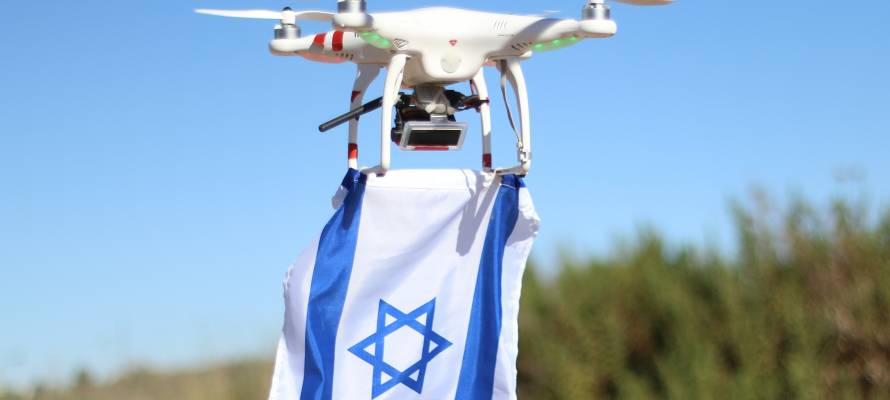Many drone startup companies have been founded in Israel over the last few years in a rapidly growing industry of commercial drones used to take aerial footage or to make deliveries.
Airscort and Dronomy are two of the most promising Israeli drone startups producing technologies in support of the drone industry alongside some of the most reputable companies in the world, such as Amazon, Alibaba, DHL, and Google.
The directors of these two startups explained their fascination with drones, the technologies they are developing, and the difficulties they have been facing.
“Drones are part of a rapidly growing market and their use has tremendous potential benefit,” Dronomy CEO Ori Aphek told TPS. Dronomy was founded in July, 2015 by Aphek and by Guy Raz, and it has already raised 1.5 million USD from investors while developing a technology that automates the piloting of drones.
“A drone needs to be close to the target and to maneuver between obstacles such as trees, power lines, and buildings in order to take high-resolution photos and videos,” explained Aphek. “This is done today by the drone operator, but we are trying to solve this issue by automating the piloting of the drone so that the operator can focus on the photography itself.”
“The operator would use our product to give general commands, and the drone would be fitted with a sensor that would prevent it from colliding with obstacles,” he added. “If it detects an object in its way, it would automatically maneuver around it.”
“We already have a proof of concept, meaning a drone that can fly and detect objects,” Aphek said. “We estimate that we will have the product finalized within a year or two.”
Itai Straus, CEO of Airscort, agrees with Aphek concerning the potential of the drone industry. He said that “drones are going to be a huge part of everyone’s future, whether in agriculture, construction, security, or simply in shooting amazing aerial video footage otherwise done with helicopters, which are much more expensive.”
Airscort intends to serve the agriculture industry. “Drones are already helping with precision agriculture, meaning that you can send them on an autonomous mission to scan your crops and to see whether certain areas are not getting enough water or are infected by insects or disease,” Straus said.
“The problem is that the battery can only last for about 15 minutes, which isn’t enough for most farmers,” he explained. “We’re developing an autonomous docking station, which would enable the drone to take off from it, perform its mission, and land back in it to recharge and continue its mission all without human involvement. Farmers would then be able to scan their crops all at once.”
Airscort has a team of eleven engineers and is now starting to raise funds. “We’ve been working on this for a year and are in advanced stages of our beta prototype,” said Straus. “We’re already conducting tests with major farmers, including one of the biggest wineries in the country.”
Besides encountering technological difficulties, drone startups also have had to deal with harsh regulations that restrict the use of drones, especially when they leave the operator’s line of sight.
“That’s why we’re starting with agriculture. We’ll be selling drones to private owners who will be flying them over their private fields so we won’t have a problem,” said Straus. “We also believe that the drone industry is going to take off in the near future and that the regulations will be changed in accordance.”
Aphek agreed and said, “the more drones prove their safety and reliability, the more regulations will fall in line. The danger of using drones is far less significant than what is often portrayed. More people have died taking a selfie than using drones.”
“It’s a new industry and it still needs to take care of its bugs, but this is going to happen and it’s very exciting,” concluded Straus. “I think people should embrace the drone industry because drones are going to make our lives better.”
By: Michael Bachner/TPS
